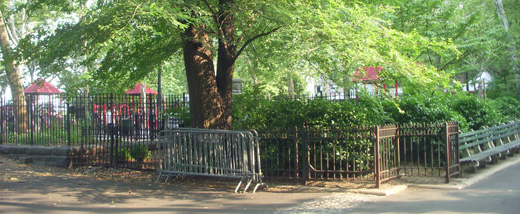Reading the Feeds:
Elites and Entrepreneurs

A word or two about Tyler Cowen’s recent entry at Marginal Revolution, “When does large-scale public ownership work?” The butt of this piece is a compare-and-contrast of the cultures of China and France on the one hand and of the United States on the other. Here is what Americans do not share with the French and the Chinese:
In part this is a puzzle but in part France and China have one important feature in common: it’s high status to be a ruler. Very smart Frenchmen often grow up wanting to work for the government. Hardly anyone in France thinks that is weird and so the French bureaucracy has some of the best talent in the country.
Americans get carried away by sentimental patriotism as eagerly as any buch of guys, but their love of country is pallid compared with what France and China inspire in their nationals: both countries are “middle kingdoms,” central sovereignties habituated to setting broad cultural standards and to solving regional problems in terms of sheer chthonic majesty. (Whether either France or China is “entitled” to this drastically superior self-image is, here, beside the point.) In both countries, being Chinese/French is a civil project that’s at least as important as any other that the government might foster (defense, industry). No wonder, then, that smart and ambitious graduates find civil service to be a top-drawer careeer.
The relationship between “being American” and the American government is starkly opposite: the government’s only task is to stay out of the way of Americans’ self-realization. Fervently patriotic Americans are like the appreciative children of very permissive parents: their taste for freedom cannot be exaggerated. And where once the canonical image of the free American was the cowboy, now it is the entrepreneur. Mr Cowen doesn’t use the word in his entry, but he carves out a space that only it could fill.
I also prefer to live in a society where the public sector does not have so much prestige. Very often governmental prestige stifles innovation and implies a series of more general insider, elitist, and sometimes authoritarian attitudes. It’s also worth a quick look at the histories of what France and China had to do to build up so much governmental prestige; not pretty.
My sympathies are altogether opposed to these sentiments; it will always be a matter of the deepest regret that I did not contrive to live my life in a society that exalted the public sector above all others. I believe that entrepreneurs are of rather marginal importance in a society as complex as ours, and even if they’re ten times more important than I think they are, they’re no model for the rest orf us. While I would not call myself an “elitist,” I will not deny or try to hide the fact that I was born, by whatever accidents, into the American elite and that I have spent my entire life in that atmosphere. Mr Cowen certainly does so now, whatever his origins. The odds are very strong that you yourself, the reader, are a member of the American elite.
What’s great about France and China — and wretched about Anglophone civilization — is that elite groups do not hypocritically pretend that they do not enjoy great advantages — the sort of advantages that will accrue to people at or near the levers of power so long as human beings walk on two legs. I don’t know that French or Chinese elites are qualitatively more responsible to their cultures than privileged Americans are, but at least they’re not vacuously pretending that they’re not Old Etonians.
